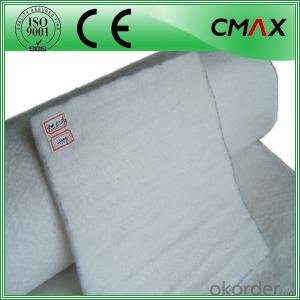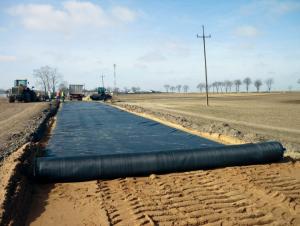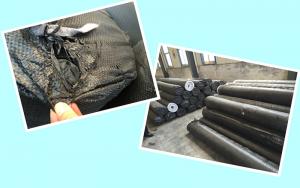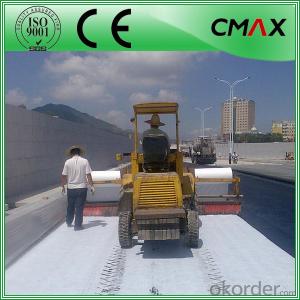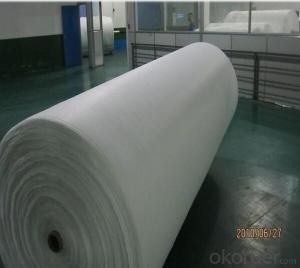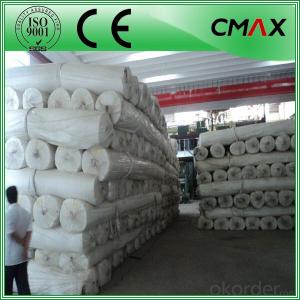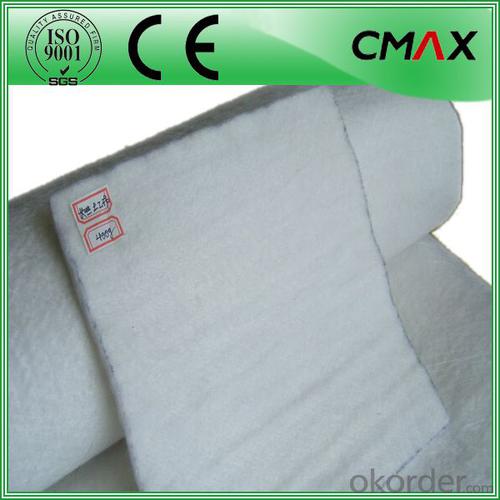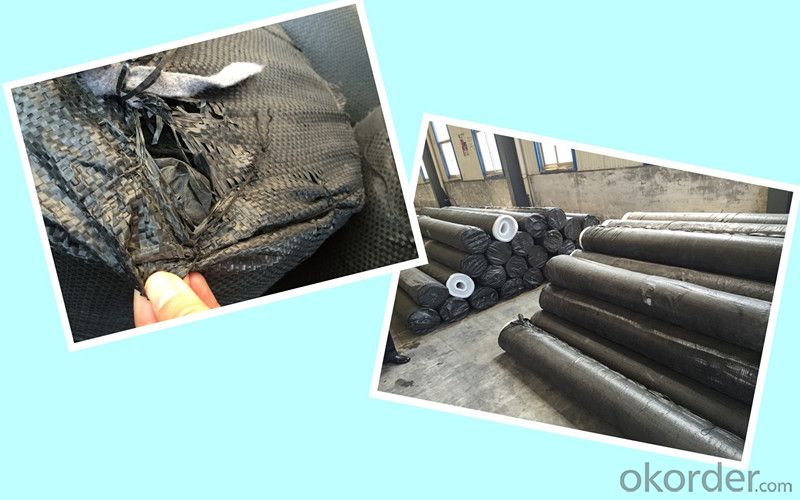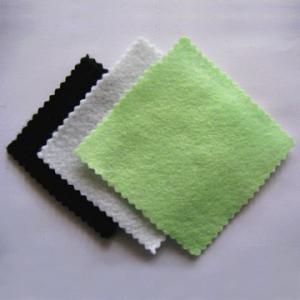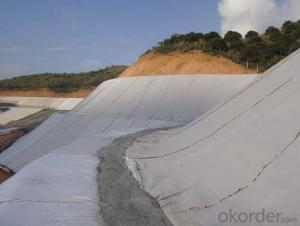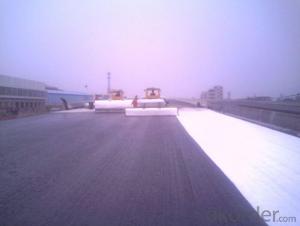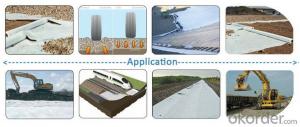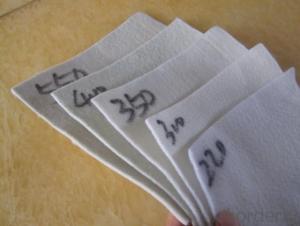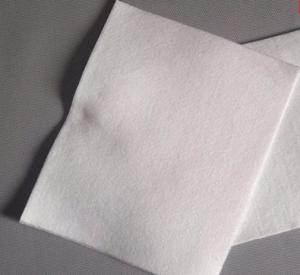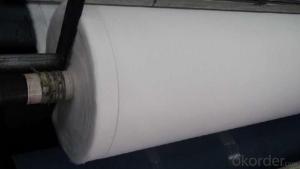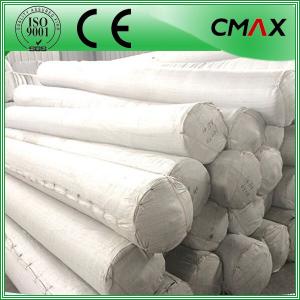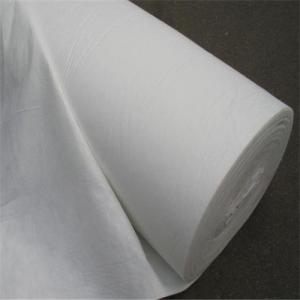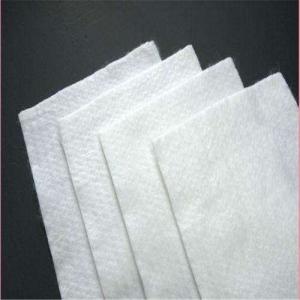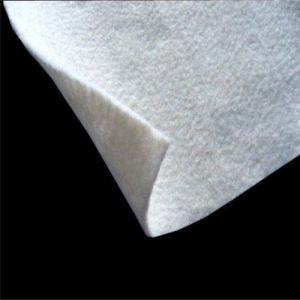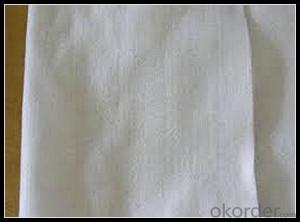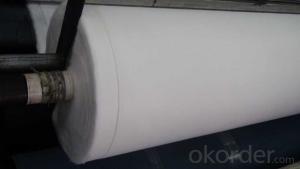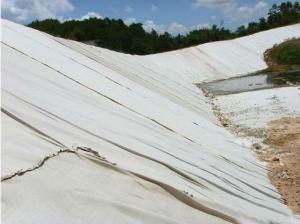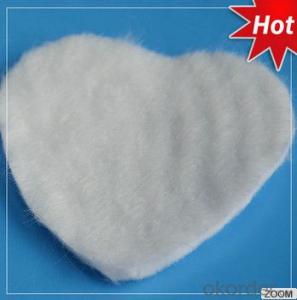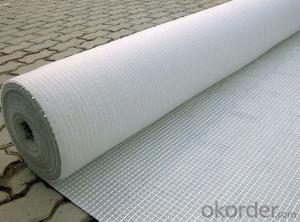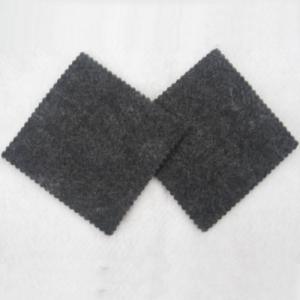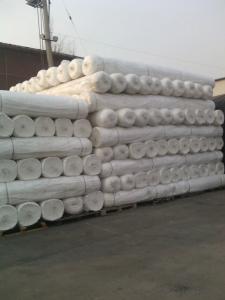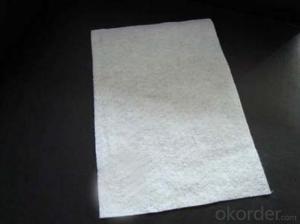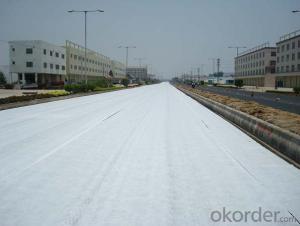Polyfelt Ts Nonwoven Geotextiles for Road Construction
- Loading Port:
- Qingdao
- Payment Terms:
- TT or LC
- Min Order Qty:
- 5000 m²
- Supply Capability:
- 10000000 m²/month
OKorder Service Pledge
OKorder Financial Service
You Might Also Like
Nonwoven Geotextile Fabric for Road Construction Geotextile
Desciriptions:
Polyester Nonwoven Geotextile Professioal Waterproof Geotextiles. A woven geotextiles is an economical solution for any civil engineering applications.Made from PP (polypropylene) or PET (polyester) short fiber by nonwoven needle punched manufacturing process, it has isolation, filtration, drainage, reinforcement, protection and maintenance etc. function.
Specifications and Technical datas:
| Weight / Mass | 100gsm - 800gsm |
| width | Within 8 m |
| longth | 50-100m/roll (at request) |
| Material | PP / PET |
| Color | Black , white , grey |
| Certification | CE/ISO9001 |
| Manufacturing method | nonwoven / woven |
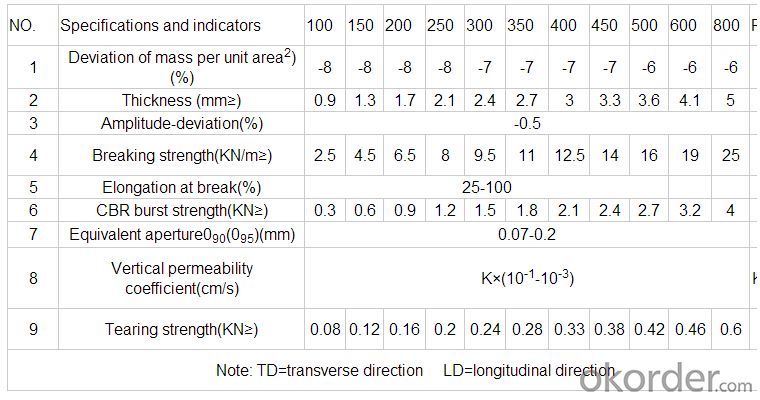
Characteristics:
1. Good flexibility, resistant to corrosion, resistant to acids and alkalis, anti-oxidation
2. Separation, filtration, drainage, reinforcement, protection, and maintenance function
Details of our products:
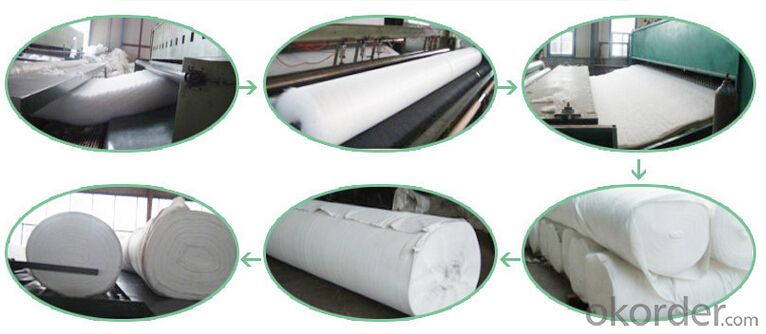
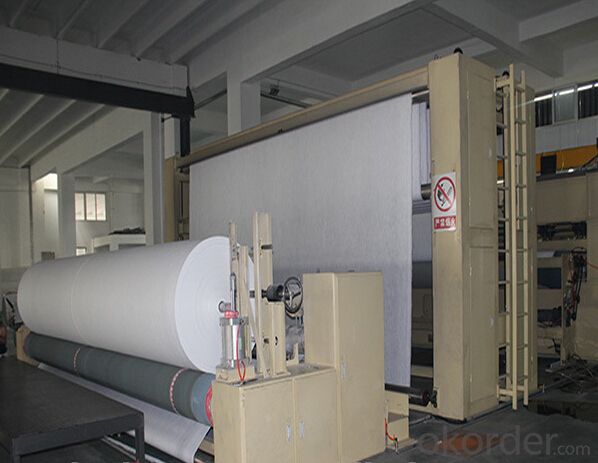
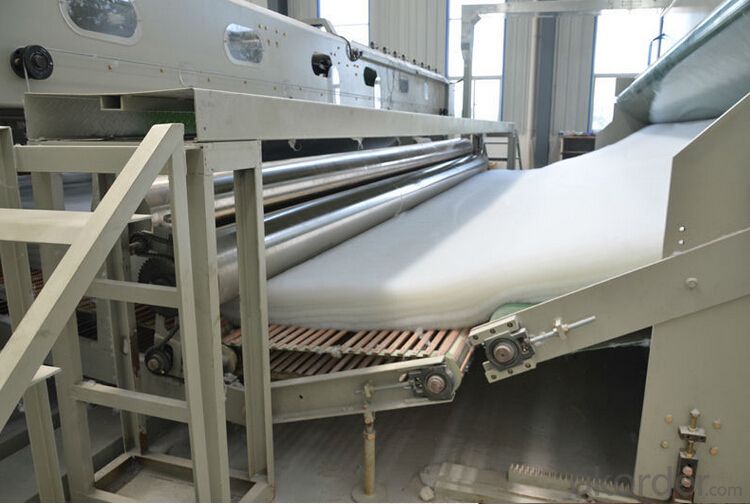
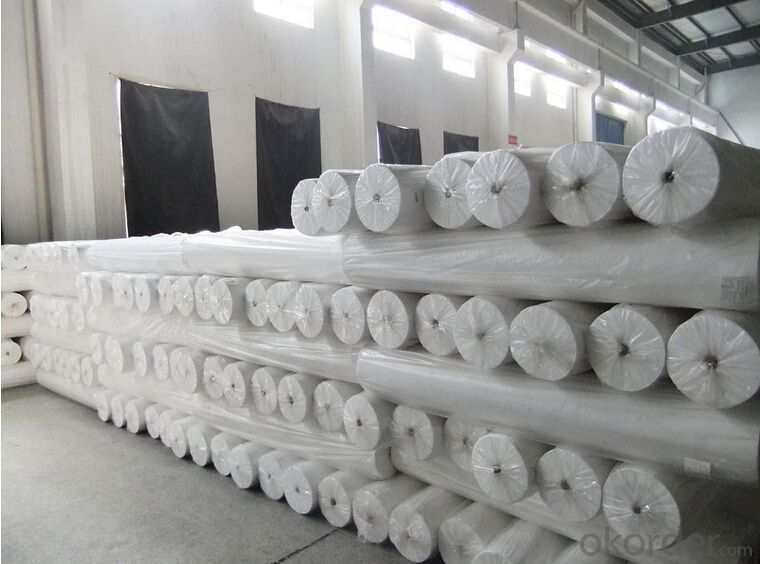
Applications:
1) Filtration :
The filtration layer of the dykes, river canal, seacoast, concrete slope, retaining walls. At the same time of preventing the clay granule from passing, it allows the water and the gas pass through freely.
2) Separation :
The isolation of the railway dregs and the roadbed, roadbed and the soft base, surface of the airdrome and parking lot and the groundsill, different dam materials. It isolates the soil and the gravel of two kinds different granule pathway from the groundsill or other buildings.
3) Adding muscle :
The highway, railway, soil-stone dam, breakwater, airport, backfill soil of retaining wall, slope protection, etc in which distributes the earth stress, prevents the side-displacement of the earth body and improves the earth body stability.
4) Protection :
It prevents the bank from being washed out, protects the bank and the bottom, prevents the water and soil from being washed away.
Packing and shipping:
1. The outer package: black or white woven geotextile.or we can make the package as your requst.
2. Different tgram/ roll size for different qty in the same containers.
3. Roll size: 3.95m*200 for container
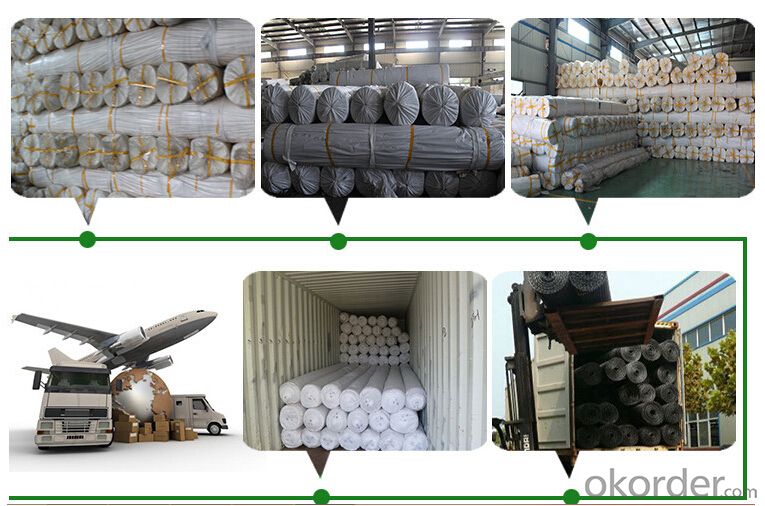
FAQ:
Q1: What is your minimum order quantity?
A:The minimum order quantity is 5000 ,but it is negotiable.
Q2:What is your payment terms?
A: T/T,Western Union,Paypal,L/C...
HDPE Geomembrane Price
Q3:What is your delivery time?
A:Production time usually costs 2-20 days.
Waiting to cooperate with you!
- Q: Please geotextile manufacturers offer,
- Please geotextile manufacturers offer,
- Q: Geotextile how to set quota
- Raw material prices + processing fees (1,500 yuan per ton) + profits (such as 500 yuan per ton)
- Q: How do geotextiles help with soil erosion control?
- Geotextiles help with soil erosion control by acting as a barrier between the soil and water, preventing the loss of soil particles. They also improve soil stability by increasing its strength and reducing the impact of erosive forces such as wind or water flow.
- Q: Is there a coinage between the embedded pipeline and the gravel blind ditch? Also on the backfill plant how to set the quota? Also ask the master advise! More
- You can go to the civil online forum to ask questions, there are a little more professional.
- Q: Can geotextiles be used in the protection of underground cables and pipes?
- Yes, geotextiles can be used in the protection of underground cables and pipes. Geotextiles act as a barrier between the cables/pipes and surrounding soil, preventing potential damage caused by abrasion, puncture, or chemical reactions. They help distribute loads and provide stability, improving the overall performance and lifespan of underground infrastructure.
- Q: Reservoir dam waterproof geotextile cloth two bags of a large package should be how much money
- Wages in 4 yuan a square. I specialize in producing geotextile materials
- Q: Unit of the quality of 400 geotextile piercing strong is generally how much? Hurry more
- First, geotextile polyester staple fiber geotextile (PET) and polyester filament geotextile two. Two kinds of geotextile anti-puncture strong (should be CBR burst strong) different. Polyester staple geotextile in accordance with the national standard GB / T-2008 standard implementation, 400g GB polyester staple geotextile CBR burst strength ≥ 2.1KN. Polyester filament geotextile in accordance with the national standard GB / T-2008 standard implementation, 400g GB polyester filament geotextile CBR burst strength ≥ 39KN. 400g GB polyester staple geotextile longitudinal and horizontal tear strength ≥ 0.33KN, 400g GB polyester filament geotextile longitudinal and horizontal tear strength ≥ 0.56KN.
- Q: What are the different geotextile durability testing standards?
- There are several geotextile durability testing standards, including the ASTM D4355-17 for durability of geotextiles by accelerated weathering exposure, ASTM D4751-10 for determining the apparent opening size of a geotextile, ASTM D6768-18 for evaluating the effects of heat on geotextiles, and ISO 10319:2015 for determining the resistance of geotextiles to weathering.
- Q: Can geotextiles be used in the construction of artificial islands?
- Yes, geotextiles can be used in the construction of artificial islands. Geotextiles are permeable fabrics that can provide effective soil stabilization, erosion control, and filtration. They can be used as a protective layer between the island's foundation and the surrounding water, preventing erosion and promoting stability. Additionally, geotextiles can assist in the drainage system of the island, allowing excess water to flow through while retaining the soil. Thus, geotextiles are a valuable tool in the construction and maintenance of artificial islands.
- Q: Mainly how to filter layer construction, cutting for the weak weathering rock
- The walls behind the sandbags ah, but in most cases are mechanical backfill, and then the top surface of a layer of sandbags and composite drainage network mean
Send your message to us
Polyfelt Ts Nonwoven Geotextiles for Road Construction
- Loading Port:
- Qingdao
- Payment Terms:
- TT or LC
- Min Order Qty:
- 5000 m²
- Supply Capability:
- 10000000 m²/month
OKorder Service Pledge
OKorder Financial Service
Similar products
Hot products
Hot Searches
Related keywords
